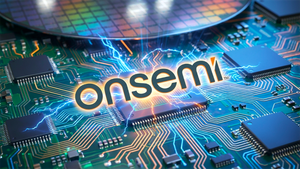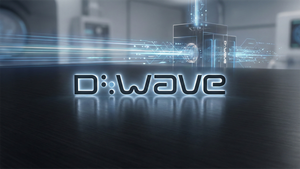
San Francisco, CA – November 24, 2025 – The blockchain world is abuzz with the full operational rollout of SQD's Portal network upgrade, a transformative leap forward in how decentralized applications (dApps) access and utilize on-chain data. This pivotal enhancement, culminating in its comprehensive announcement today, introduces real-time streaming data capabilities, drastically reduced latency, and a powerful Rust-powered engine, fundamentally reshaping the landscape for Web3 developers and users alike. The upgrade promises to solve long-standing data access challenges, paving the way for a new generation of faster, more reliable, and truly decentralized blockchain applications.
The immediate implications are profound: Web3 applications are now poised to shed the shackles of delayed and unreliable data feeds, offering users unparalleled responsiveness and access to critical market intelligence. By decentralizing data retrieval and significantly boosting performance, SQD is not just improving an existing service; it's addressing a core infrastructural bottleneck that has hindered the scalability and user experience of the entire blockchain ecosystem. This move marks a significant step towards a more mature and efficient Web3 environment, where data flows as freely and instantly as information in traditional web applications.
Unpacking the Architecture: Real-time Streams, Rust Engine, and Unmatched Speed
The SQD Portal upgrade is a comprehensive overhaul designed to deliver a superior data experience. At its core is the introduction of decentralized real-time streaming data, epitomized by features like "Hot Blocks," which provide live updates on blockchain activity. This functionality drastically reduces developers' reliance on traditional, often bottlenecked, RPC node providers for live data, mitigating issues such as stalled charts and inconsistent data feeds. With Portal, dApps can maintain continuous, accurate data streams, ensuring users always receive the most current information without manual intervention.
A cornerstone of Portal's revolutionary performance is its substantial reduction in data latency and a dramatic boost in processing speed. SQD reports "huge performance improvements" and "unmatched speed," enabling the querying of up to 20 million blocks per second with optimized parallelism. This represents an astonishing "10-50x performance boost" compared to SQD's previous centralized Archives. For Web3 users, this translates directly into faster dApp updates, quicker access to crucial market data (often referred to as "alpha"), and a significantly more responsive and seamless overall experience. The timeline saw an initial beta rollout around December 2024, with public real-time data streams anticipated in January 2025, culminating in today's full operational announcement.
Central to these unprecedented performance gains is the complete rewrite of SQD's query engine in Rust. The previous Python-based engine has been replaced by Rust, a language renowned for its speed, memory safety, and superior concurrency features. This powerful new engine, combined with parallelized queries and various execution optimizations across a network of over 2,500 worker nodes with 30x data replication, is the bedrock of Portal's ability to handle heavy workloads and provide rapid data ingestion, fundamentally enhancing the stability and resilience of blockchain data access. Key players include SQD itself, dApp developers who will leverage these new capabilities, and existing RPC node providers who will face a significant shift in the data access paradigm. Initial reactions from the industry highlight Portal's success in solving a fundamental, long-standing data problem in the blockchain space.
Shifting Sands: Who Wins and Who Loses in the New Data Paradigm
The SQD Portal upgrade is poised to create distinct winners and losers within the Web3 ecosystem, fundamentally altering competitive landscapes and strategic priorities. The most apparent beneficiaries are Web3 application developers and projects that prioritize real-time data, low latency, and decentralized infrastructure. For these entities, Portal offers a robust, scalable, and cost-efficient solution to a problem that has historically plagued their operations. Projects building decentralized exchanges (DEXs), sophisticated analytics platforms, gaming applications, and any dApp requiring instant access to on-chain events will find their development cycles shortened, their user experiences enhanced, and their operational costs potentially reduced by up to 90% compared to reliance on centralized RPC services. This empowers smaller teams and startups to compete more effectively with established players by accessing high-quality data without prohibitive infrastructure costs.
Conversely, traditional RPC node providers face a significant challenge. While RPCs will still be necessary for transaction broadcasting and certain specialized queries, Portal's ability to handle up to 90% of 'read' operations for real-time and historical data streams directly encroaches upon their primary business model. Companies heavily reliant on providing general-purpose data access may see a substantial reduction in demand for their services, particularly from dApps seeking optimized, decentralized solutions. This could force these providers to pivot their offerings, specialize in niche services, or innovate to remain competitive in a market increasingly dominated by solutions like Portal. Their ability to adapt to this new decentralized data paradigm will be crucial for their long-term viability.
Furthermore, investors in existing centralized data indexing or analytics solutions might need to re-evaluate their portfolios. If Portal proves to be a superior, more cost-effective, and decentralized alternative, the value proposition of some incumbent data infrastructure providers could diminish. On the other hand, companies that integrate seamlessly with Portal or build complementary services on top of its real-time data streams could see significant growth. The shift underscores a broader industry trend towards decentralization not just in computation, but in fundamental data access, rewarding those who embrace and leverage this architectural evolution.
Broader Implications: A Catalyst for Decentralization and Market Evolution
The SQD Portal upgrade is more than just a technical improvement; it represents a significant milestone





